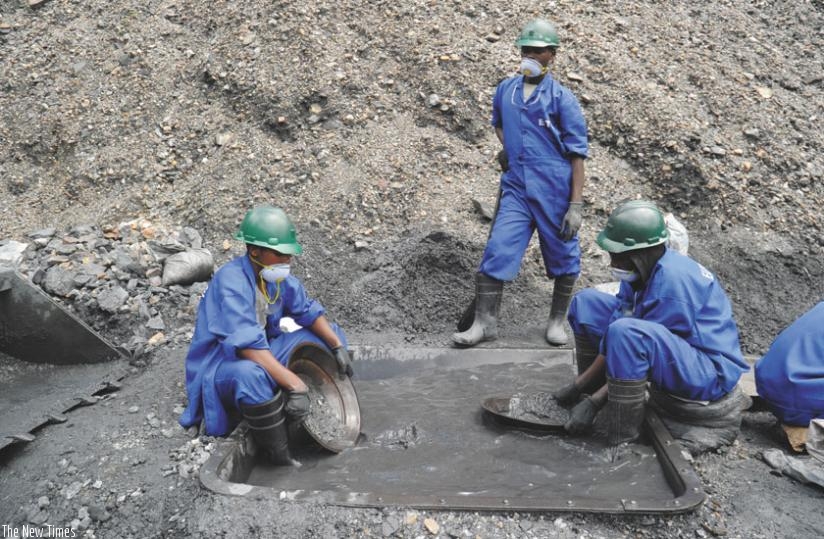Prices for minerals like coltan, tin and wolfram, have been falling on the international market since September, raising concern among local miners and exporters.


Prices for minerals like coltan, tin and wolfram, have been falling on the international market since September, raising concern among local miners and exporters. Jean Malic Kalima, the president Rwanda Mining Association, says the problem has been compounded by the challenges facing the sector. Kalima spoke to The New Times’ Peterson Tumwebaze about these and other issues affecting the mining sector:
Prices for minerals on the international markets have been falling since last September, what is the cause and what is the current situation?
What we should understand is that the mining sector is as volatile as the oil industry. However, the current price decline for a number of metals is largely due to increased production of minerals from Asian markets, like Myanmar, Thailand, China and Malaysia. These are the largest producers of tin, coltan and wolfram, which are also the main minerals produced by Rwanda.
This increased output in Asia has, therefore, effected pricing, hurting small economies like ours.
Has the local mining industry been greatly affected by the development?
We are losing business. It will be difficult now for most exporters to meet their targets this year. It will be hard for the sector to match 2014 earnings even if production does not drop.
How is the sector handling the situation?
The situation has forced miners and exporters to hoard and wait until prices appreciate; we are also encouraging miners to increase output to sort of cover for the loss in value.
We will soon hold a meeting with the Ministry of Mining officials, the Rwanda Revenue Authority and other stakeholders to find ways of easing the impact of decline in prices on miners and exporters.
However, we want government to understand that this challenge needs to be addressed collectively to lessen the impact on the sector.
The government should support the sector by waiving off some of the taxes paid by exporters, like those for certification and tagging of minerals. One pays $130 per tonne for tin and wolfram, while coltan dealers part with $180 per tonne. This is a lot of money… Besides these fees, we are also paying 4 per cent loyalty tax.
So, our prayer is that the government incorporates these charges in the 4 per cent paid on loyalties to reduce costs and make the sector more competitive on the international market. We are happy that the Ministry of Trade and Industry is monitoring the issue closely.
Some people will argue that the problem stems from exporting unprocessed minerals...
The local mining sector is still underdeveloped, and many miners do not have the capacity to process the metals. Our main focus, for now, is on exploration and mining.
However, value addition is the way to go, especially to guard against occurrences like this.
Miners have been complaining about lack of funding; how is the situation after meeting with bankers recently?
The truth is that many miners get loans from foreign lenders because it is expensive to borrow from local banks. We are, however, interacting with Rwandan financial institutions and assuring them that the mining sector is not as risky as they think. Hopefully, they will soon change their stance.
The National Bank of Rwanda is also trying to engage bankers so that they can give long-term capital to the industry.
How are you addressing the challenge of limited technical knowhow?
We are working closely with the Ministry of Education through the Technical Vocational Education Training (TVET) programme to train young professionals for the mining sector. We are confident the initiative will help professionalise the mining industry and make it more competitive.
You had a problem with withholding tax, any developments on the issue?
We are still engaging the tax body on the issue of the $15 withholding tax, which is still a burden to us. It is good that they are open for discussion. We hope the issue will be resolved soon.
What else should government do to boost the mining industry?
It will require proper training and capacity building to get the required skilled personnel. Sector investors should also be given more facilitation. It is important for government to put in place a guarantee fund for the sector to help address the challenge of access to credit.
But there is an export guarantee fund in place…
It is a good idea, but it is not enough...they are talking of about Rwf500 million, yet we have already tabled a budget of $7 million for the next fiscal year’s operations. So, more support is required to make the sector more competitive.
business@newtimes.co.rw


